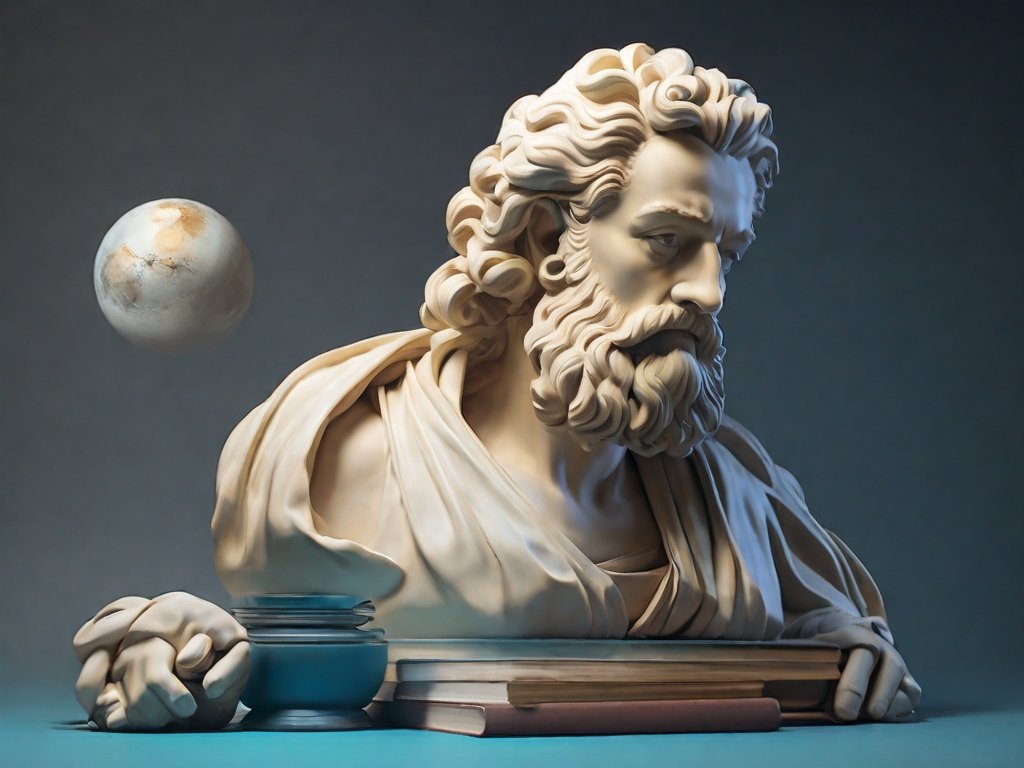Introduction
In the realm of philosophy, the term “modern” often conjures up images of complex and indecipherable texts, stuffy scholars, and outdated ideas. However, there is a hidden treasure trove of modern philosophy books that offer fresh and nuanced perspectives on the world we live in. These books challenge conventional wisdom, ignite curiosity, and invite us to question the very fabric of our existence. In this article, we will embark on an intellectual journey through four modern philosophy books that have the power to rekindle our sense of wonder and open our minds to new possibilities.
Seven Ways of Looking at Pointless Suffering
Scott Samuelson’s “Seven Ways of Looking at Pointless Suffering” serves as an excellent starting point for those curious about modern philosophy. Samuelson tackles one of the fundamental questions of philosophy: how do we justify and cope with unnecessary suffering in the world? Rather than offering a single answer, he takes readers on a thought-provoking journey through history, exploring various perspectives on suffering.
One of the book’s strengths lies in Samuelson’s ability to ground his philosophical discussions in real-world experiences. As a volunteer teacher at a local prison, he shares poignant anecdotes and insightful conversations with inmates, providing a tangible application of the book’s themes. By bridging the gap between theory and practice, Samuelson offers readers a deeper understanding of the complexities surrounding suffering.
Gödel, Escher, and Bach: An Eternal Golden Braid
Douglas Hofstadter’s “Gödel, Escher, and Bach: An Eternal Golden Braid” is a masterpiece that weaves together the realms of mathematics, art, music, philosophy, and cognitive science. While it may seem daunting at first, the book’s format is a joy to explore, with Hofstadter seamlessly connecting diverse disciplines into a coherent narrative.
At the heart of the book lies the concept of self-reference and incompleteness. Hofstadter delves into paradoxes, such as the famous liar’s paradox, and explores how self-referential systems form the basis of consciousness. He presents a compelling argument that our perception of the self is a fluid and dynamic interplay between various symbols constructed by the mind.
Beyond its exploration of consciousness, the book also delves into the emergence of complex systems and their ability to process vast amounts of information. Hofstadter’s work provides a profound understanding of how matter can organize itself into patterns of information, leading to the emergence of consciousness.
I Am Dynamite!: A Life of Nietzsche
Sue Prideaux’s “I Am Dynamite!: A Life of Nietzsche” offers a captivating glimpse into the life and ideas of one of the most influential philosophers of all time. Nietzsche’s life was marked by immense physical suffering, yet he lived with a fierce vitality and prophetic vision that continues to resonate today.
Prideaux takes readers on a journey through Nietzsche’s struggles with illness, his unconventional lifestyle, and his profound insights into the human condition. By understanding Nietzsche’s life, readers gain a deeper appreciation for his philosophical works and the profound impact they had on Western culture.
This biography also serves as an entry point for those interested in exploring Nietzsche’s philosophical ideas. Prideaux skillfully navigates the complexities of Nietzsche’s thought, making it accessible to both philosophy enthusiasts and general readers alike. Whether you are interested in philosophy, biographies, or European history, this book is a must-read.
This Life: Secular Faith and Spiritual Freedom
Martin Hägglund’s “This Life: Secular Faith and Spiritual Freedom” is a thought-provoking exploration of the secular basis of morality and the meaning of life. Hägglund challenges the notion that religious beliefs are necessary for ethical behavior, arguing that our understanding of mortality gives life its meaning.
The book begins by acknowledging the inherent finitude of human existence, emphasizing that our awareness of our death makes life precious. Hägglund proposes that meaning is derived from our knowledge that our time is limited, and it is up to us to create our purpose in this finite existence.
Hägglund’s work also delves into the relationship between freedom and faith. He argues that true freedom lies in the ability to choose our meaning and reject the notion of an eternal afterlife. By embracing the present moment and accepting responsibility for our own lives, we can cultivate a sense of spiritual freedom.
Conclusion
Modern philosophy offers a wealth of ideas and perspectives that challenge our preconceived notions and invite us to explore the depths of human existence. The books discussed in this article provide a glimpse into the world of modern philosophy, from the exploration of suffering and consciousness to the search for meaning in a secular world.
By engaging with these works, we can embark on a personal journey of intellectual growth and self-discovery. These books have the power to ignite our curiosity, expand our horizons, and inspire us to question the very fabric of our existence. So, pick up one of these remarkable books, approach it with an open mind, and let the journey begin.
